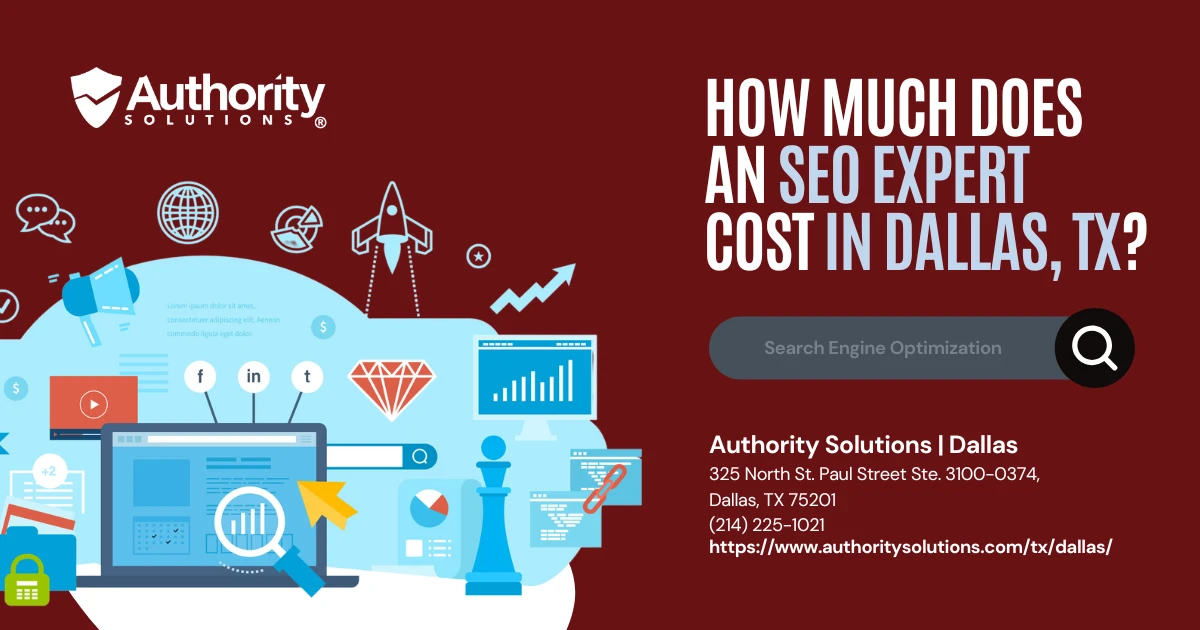Demystifying Internet Marketing Services: Everything You Need To Know
If you're a business owner looking to expand your online presence, internet marketing is essential. However, with so many different services and strategies available, it can be overwhelming to figure out where to start. That's why this article will demystify internet marketing services and give you everything you need to know.
Firstly, we'll cover the basics of internet marketing and explain each strategy in simple terms. From search engine optimization (SEO) to social media marketing, we'll break down how each service works and what benefits it can offer your business. Then, we'll help you choose the right internet marketing services for your specific needs based on factors such as budget, target audience, and goals. By the end of this article, you'll have a solid understanding of internet marketing and be equipped with the knowledge you need to take your business's online presence to the next level.
Understanding the Basics of Internet Marketing
If you're new to internet marketing, understanding the basics can seem overwhelming at first, but don't worry - we've got you covered. Internet marketing refers to any activity that a business conducts online to promote their brand or products/services. Some examples of internet marketing include social media advertising, email marketing, and search engine optimization (SEO).
To get started with internet marketing, it's important to have a clear understanding of your target audience and their preferences. You'll want to conduct market research and create buyer personas in order to tailor your messaging and campaigns accordingly. Additionally, having a strong website with high-quality content is crucial for success in internet marketing.
Another key component of internet marketing is tracking and measuring your results. This allows you to see what's working well and where there may be room for improvement. By analyzing data such as website traffic, click-through rates, and conversion rates, you can make informed decisions about how to adjust your strategies going forward.
With a solid foundation in the basics of internet marketing under your belt, it's time to dive into more specific tactics like search engine optimization (SEO). By optimizing your website for search engines like Google, you can improve its visibility and attract more organic traffic.
Search Engine Optimization (SEO)
If you want to improve your website's ranking, mastering Search Engine Optimization (SEO) is a must. Both On-Page and Off-Page SEO techniques are essential for optimizing your site and making it more visible to search engines. To measure the success of your SEO efforts, there are various tools available that can help you monitor your performance and make informed decisions about how to improve your website's visibility.
Importance of SEO for Website Ranking
You can't afford to ignore SEO if you want your website to rank higher and attract more traffic. The importance of SEO lies in the fact that it helps search engines understand what your website is about, making it easier for them to index and rank your pages. Without proper optimization, your website may be buried deep within search engine results pages, making it difficult for potential customers to find you.
SEO also plays a crucial role in improving user experience on your website. By optimizing the content and structure of your site, you make it easier for users to navigate and find what they are looking for. This not only keeps users engaged with your site but also increases their likelihood of converting into customers. In order to achieve these benefits from SEO, it's important to understand both on-page and off-page techniques.
On-Page and Off-Page SEO Techniques
To maximize the potential of your website, it's essential to utilize both on-page and off-page SEO techniques. On-page SEO focuses on optimizing elements within your website to improve its search engine ranking. This includes keyword research and optimization, meta tags, header tags, internal linking structure, content quality and relevance, user experience, and mobile responsiveness.
Off-page SEO involves external factors that impact your website's visibility in search engines. This includes backlinks from other reputable websites, social media signals, online directories and listings, guest blogging opportunities, influencer marketing partnerships, and local citations. By implementing a combination of both on-page and off-page SEO strategies effectively, you can increase organic traffic to your website and improve its overall performance.
As you work towards enhancing your website's online presence through effective SEO practices, it is also important to measure the results of these efforts regularly. In the subsequent section about 'tools for measuring seo performance,' we will explore some valuable resources that can help you track how well your website is performing in search engine rankings and identify areas for improvement.
Tools for Measuring SEO Performance
Measuring SEO performance is crucial for optimizing your website's online visibility and there are several tools available to help track your progress. One of the most popular tools is Google Analytics, which provides valuable insights into your website's traffic sources, user demographics, and behavior. With this information, you can identify which keywords are driving the most traffic to your site and adjust your content accordingly.
In addition to Google Analytics, there are other tools like SEMrush and Ahrefs that offer more comprehensive SEO analysis. These platforms provide detailed reports on keyword rankings, backlink profiles, and competitor analysis. By using these tools, you can stay ahead of the competition and continually improve your website's search engine rankings. With these resources at hand, you can effectively measure the effectiveness of your SEO strategy and make informed decisions about future optimization efforts.
Transition: Now that you know how to measure the success of your SEO efforts using various tools, it's time to explore pay-per-click (PPC) advertising as another avenue for improving online visibility.
Get found online with Authority Solutions®' SEO.
Pay-Per-Click (PPC) Advertising
If you're looking to drive more traffic to your website, Pay-Per-Click (PPC) Advertising is a powerful tool that can help. PPC advertising involves placing ads on search engine results pages, social media platforms, and other websites. The benefits of PPC advertising include the ability to target specific audiences, measure the success of your campaigns in real-time, and control your ad spend. To make the most of your PPC campaigns, it's important to follow best practices such as conducting thorough keyword research, creating compelling ad copy, and continually testing and optimizing your campaigns for maximum effectiveness.
Definition of PPC Advertising
PPC advertising, also known as pay-per-click advertising, is a method of online advertising where businesses pay each time a user clicks on one of their ads. These ads are typically found at the top or bottom of search engine results pages and can be targeted towards specific keywords or demographics. By using PPC advertising, businesses have the ability to reach their ideal audience and increase brand visibility in a cost-effective manner.
The process for setting up a PPC campaign involves selecting relevant keywords, creating ad copy, and determining bid amounts for each keyword. Once the campaign is launched, businesses can track its success by monitoring metrics such as click-through rate (CTR) and conversion rate. PPC advertising offers many benefits including increased website traffic, higher quality leads, and measurable results that allow for optimization over time. In the next section, we will explore these benefits in more detail.
Benefits of PPC Advertising
One great advantage of using PPC advertising is that it can help businesses reach their ideal audience in a cost-effective manner. With PPC, you only pay when someone clicks on your ad, which means you're not wasting money on people who are not interested in your product or service. Here are three benefits of using PPC advertising:
- Increased visibility: PPC ads appear at the top of search engine results pages (SERPs), which means they get more visibility than organic search results.
- Targeted advertising: With PPC, you can target specific keywords and demographics to ensure that your ads are seen by the right people.
- Measurable results: Unlike traditional forms of advertising, such as print or TV ads, PPC provides measurable results. You can track how many people clicked on your ad, how much each click cost, and how many conversions resulted from those clicks.
By leveraging these benefits of PPC advertising, businesses can increase their online presence and drive more traffic to their website. In the next section, we'll discuss best practices for creating successful PPC campaigns.
Best Practices for PPC Campaigns
To create successful PPC campaigns, you should start by researching your target audience and selecting relevant keywords to bid on. Knowing who your audience is and what they're searching for will help you choose the best keywords that will attract clicks and conversions. Additionally, it's important to constantly monitor and adjust your bids based on keyword performance, as well as to regularly update your ad copy to keep it fresh and relevant.
Another key factor in creating effective PPC campaigns is optimizing your landing pages. Your landing page should be tailored specifically for the ad that brought the user there, with a clear call-to-action that encourages them to take the next step in the conversion process. Make sure your landing page loads quickly and is easy to navigate, with a clean layout and minimal distractions. By following these best practices for PPC campaigns, you can maximize your ROI and reach more potential customers through targeted advertising. Now let's move on to discussing how social media marketing can further enhance your online presence.
Social Media Marketing
If you want to expand your online presence, then social media marketing is a must. It's a powerful tool that can help you engage with your target audience and drive traffic to your website. Different platforms like Facebook, Twitter, Instagram, LinkedIn, and others offer unique opportunities to promote your brand and connect with potential customers. To make the most out of it, follow these tips for effective social media marketing: create a content calendar that aligns with your business goals; post engaging content regularly; use relevant hashtags; interact with followers by responding to comments and messages promptly.
Importance of Social Media Marketing
Social media marketing is crucial for businesses to connect with their audience and establish a strong online presence that can drive sales and increase brand loyalty. Here are three reasons why social media marketing is so important:
- It allows you to reach a wider audience: With over 3 billion active social media users worldwide, it's clear that social media platforms offer an unparalleled opportunity to reach potential customers.
- It helps build brand awareness: Social media gives businesses a platform to showcase their products or services and communicate their brand messaging in an engaging way.
- It offers valuable customer insights: Social media analytics tools allow businesses to track engagement metrics, monitor conversations around their brand, and gain insights into what their target audience wants and needs.
With these benefits in mind, it's clear that social media marketing should be an integral part of any business' overall marketing strategy. In the next section, we'll explore different platforms for social media marketing and how they can be used effectively for your business.
Different Platforms for Social Media Marketing
Maximize your brand's reach and connect with your audience on various social media platforms that suit your business needs. Social media marketing is a highly effective way to engage with potential customers and build brand awareness. It is important to understand the different platforms available to you so that you can choose which ones will work best for your business.
Facebook, Instagram, Twitter, LinkedIn, TikTok, and YouTube are just a few of the popular social media platforms available. Each platform has its own unique features and advantages that can be leveraged depending on your business goals. For example, Facebook offers robust targeting options for ads while Instagram is ideal for visual content like photos and videos. Understanding these nuances will help you create tailored campaigns for each platform and maximize engagement with your target audience. With this in mind, let's dive into tips for effective social media marketing.
Tips for Effective Social Media Marketing
You'll want to take note of these essential tips for creating impactful social media campaigns that will leave your audience feeling engaged and inspired. Firstly, it's important to establish a clear message or theme for your brand across all social media platforms. This means ensuring that the tone, language, and visuals used are consistent with your overall brand identity.
Secondly, focus on creating content that is both relevant and valuable to your target audience. This could mean sharing industry news or trends, offering exclusive promotions or discounts, or simply providing helpful advice or information. By consistently delivering high-quality content that resonates with your followers, you can build a loyal following and increase engagement levels on your social media pages. With these tips in mind, you'll be well on your way to creating a successful social media strategy that helps you achieve your marketing goals.
Now that you've got a handle on effective social media marketing techniques, let's move onto the next step: choosing the right internet marketing services for your business.
Choosing the Right Internet Marketing Services for Your Business
When it comes to selecting internet marketing services for your business, it's important to narrow down options that align with your specific goals and target audience. One way to do this is by conducting thorough research on various service providers and their capabilities. Look for companies that have experience in your industry or niche, as they will have a better understanding of what works best.
Another crucial factor to consider when choosing the right internet marketing services is the level of customer support offered. A reliable service provider should be readily available to answer any questions or concerns you may have throughout the process. They should also provide regular updates on the progress of your campaigns and be willing to make adjustments as needed.
Don't forget about cost when selecting an internet marketing service provider. While it's important to invest in quality services that will yield results, you also need to ensure that you're getting a fair price for what you're receiving. Compare pricing plans from different providers and choose one that offers a good balance between affordability and quality. By taking these factors into consideration, you can select an internet marketing service provider that will help take your business to new heights of success!
Frequently Asked Questions
How much does internet marketing cost on average?
On average, internet marketing costs can range from a few hundred dollars to thousands per month depending on the services and strategies you choose. It's important to set a budget and work with a reputable agency or consultant who can provide transparent pricing and measurable results.
What are some common mistakes to avoid when implementing an internet marketing strategy?
Avoid common mistakes in internet marketing by not ignoring your target audience, neglecting to track analytics, failing to optimize your website, and not having a clear call-to-action. Stay organized and focused on your goals.
Can internet marketing services guarantee a certain number of leads or sales?
Internet marketing services cannot guarantee a specific number of leads or sales. However, they can increase your online visibility and drive traffic to your website, which can ultimately lead to more conversions. It's important to have realistic expectations and track progress over time.
How long does it typically take to see results from internet marketing efforts?
Typically, it takes several months to see significant results from internet marketing efforts. This is because search engines need time to index your content and for your audience to build trust in you. Consistency is key, so keep at it!
Are there any legal or ethical considerations to keep in mind when using internet marketing services?
When using internet marketing services, it is important to consider legal and ethical implications. Avoid false advertising and adhere to privacy laws. Disclosure of sponsored content is necessary for transparency.
Conclusion
Congratulations! You've completed the journey to demystifying internet marketing services. By now, you should have a good understanding of the basics of internet marketing, which includes SEO, PPC advertising, and social media marketing.
SEO helps your website rank higher on search engines like Google. It involves optimizing your website's content and structure to make it easily discoverable by users searching for keywords relevant to your business. On the other hand, PPC advertising allows you to display ads on search engine results pages or other websites and pay only when users click on them. Lastly, social media marketing is an effective way to interact with customers and promote your brand through social platforms like Facebook, Twitter, Instagram, and LinkedIn.
When choosing the right internet marketing services for your business, it's important to consider several factors such as budget, target audience, business goals, and competition analysis. Make sure that you choose a reputable agency or consultant who can provide customized solutions tailored specifically to your needs.
In today's digital age where consumers are constantly connected online, having a strong online presence is crucial for any business looking to succeed in the long run. By leveraging various internet marketing services available today, you can effectively reach out and engage with potential customers while growing your brand awareness and boosting sales at the same time.
So go ahead - take the next step towards building a successful online presence! With this newfound knowledge about internet marketing services at your fingertips - combined with patience and perseverance - there's nothing stopping you from achieving success in today's digital landscape.







